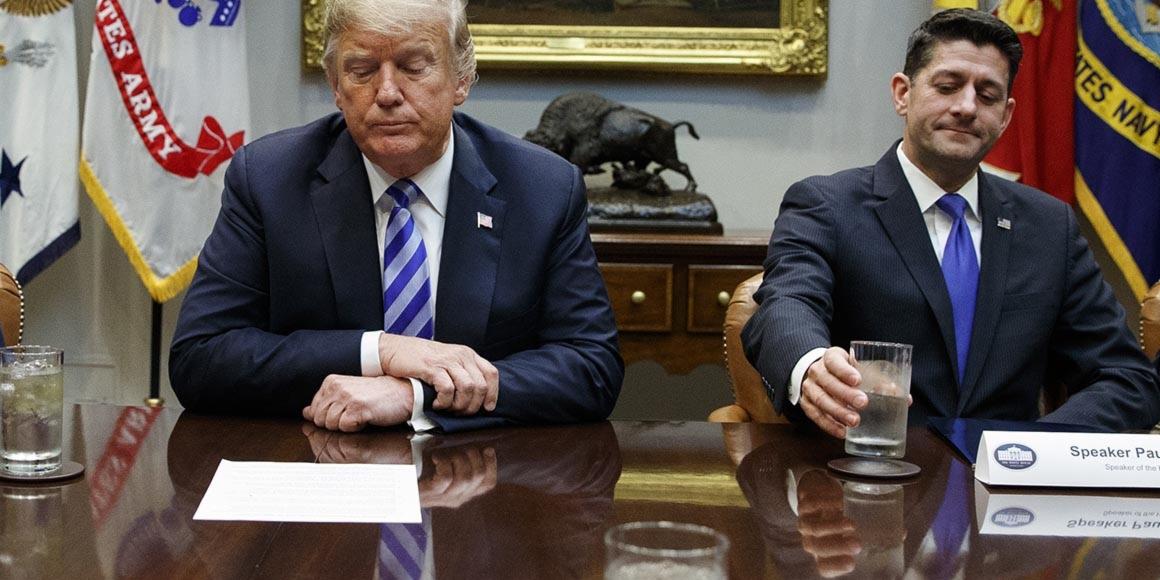
It was barely two o'clock in the afternoon and Paul Ryan was offering me a beer.
We stood in a cramped break room — microwave, sink, refrigerator stocked with Miller Lite — on the third floor of a brick building in Janesville, Wisconsin, making small talk before sitting down in his adjacent office for a lengthy interview. Ryan was relieved to be home. A few weeks earlier, he had packed up his final belongings and left Washington for good, ending a 20-year career in Congress that saw him occupy roles ranging from right-wing wunderkind to vice-presidential candidate to unifier of a fractured party to chief enabler of President Donald J. Trump.
That final leg of Ryan's political journey had certainly been the most exhausting. Once upon a time, he had been mortified at the prospect of Trump as the GOP nominee, spending much of 2015 and 2016 telling anyone who would listen that the reality TV star was immoral and unfit for office. Even after Trump vanquished the Republican primary field, Ryan refused to muffle his objections, at one point memorably rebuking the party’s new standard-bearer for making “the textbook definition of a racist comment.” Yet when the time came for choosing on November 8, 2016 — to risk his speakership by continuing to hold the new president accountable, or preserve his standing in the party by taking a vow of silence — Ryan did not think twice. There was historic work to be done, he told friends, and quarreling with Trump would prove wholly counterproductive. He could not afford to be both the speaker of the House and the conscience of the Republican Party.
What ensued was a bruising, mortifying, tortured 26 month partnership between two men who disliked one another but had become convinced of the necessity of a ceasefire. It was, Ryan told friends, at once the most auspicious and agonizing stretch of his adult life. Even while securing enormous new funding for the military and re-writing the tax code, he knew history would remember Republicans for operating in the shadow of a president whose performance eclipsed their hardest-won legislative accomplishments.










